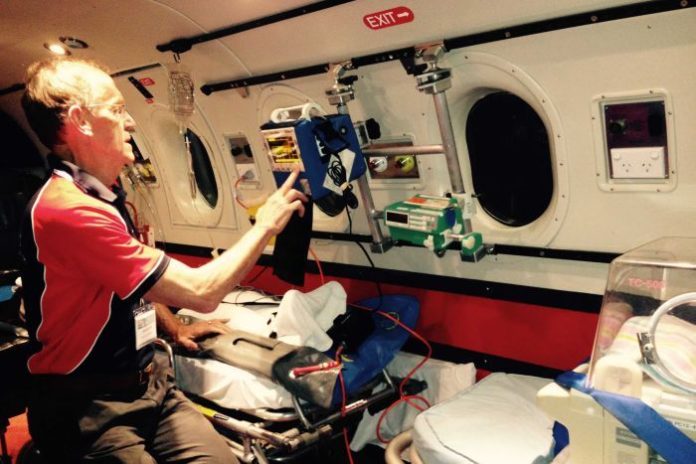 After 15 years of service, doctor John Setchell has retired from the Royal Flying Doctor Service (RFDS).
After 15 years of service, doctor John Setchell has retired from the Royal Flying Doctor Service (RFDS).
Based in Port Augusta, Mr Setchell retired as general manager of RFDS Central Operations, which covered South Australia and the Northern Territory up to Elliot.
Mr Setchell said that he did not always want to be a doctor and it was only after a science degree and studying the pituitary gland of kangaroos that he found medicine.
“My wife said, ‘we now have three children, we probably have to go and earn some money’,” he said.
“I did five years in general practice in the city and realised I still had a hankering for some adventure in medicine.
“[So] we went as a family with three young kids to Papua New Guinea for two years.”
For Mr Setchell, Papua New Guinea was an “extraordinary eye-opener”.
He said he was the only doctor for about 200 kilometres in either direction and looked after about 10,000 patients.
“It was a group with a sugar cane plantation and so there was a lot of trauma from the bush knifes and the cane cutting,” he said.
I got a call from the infectious disease unit saying, ‘would you mind if your patient got sent to the infectious disease unit because the registrars haven’t seen a case of malaria’.
Retired doctor John Setchell
“There was a lot of malaria.”
Mr Setchell said of the two years he worked in Papua New Guinea, he probably learnt more than he would have over 10 years in Australia.
On returning to Australia, Mr Setchell got the job of running the health service at the University of Adelaide and one of his first patients had just returned from Africa with classic symptoms of malaria.
“I made the diagnosis, it was malaria, and starting treating it,” he said.
“And the next day I got a call from the infectious disease unit saying, ‘would you mind if your patient got sent to the infectious disease unit because the registrars haven’t seen a case of malaria.
“I was able to send them some teaching material.”
The beginning of Mr Setchell’s work with the Royal Flying Doctors is something he has vivid memories of.
“I clearly remember my first day; we got to the first property and it was probably early morning tea and morning tea was laid on with Anzac biscuits and fruit cake,” he said.
“We went to the next property and it was late morning tea and there was another big spread.
“The message had obviously got out that the new guy was coming and in an extraordinarily hospitable way the property owners made me welcome.”
Mr Setchell said that compared to the city where doctors were easily accessible, a different kind of relationship was formed with people in the bush.
“We [the RFDS] are exceedingly privileged in the way we get let into people’s lives,” he said.
“It’s been an absolute privilege to be able to provide health services to people in [remote] areas.”
The best and the worst of it
On an experience where Mr Setchell felt he had done his job, he recalls an American man at Uluru.
“Admittedly a tourist, so we are not talking about traditional patients,” he said.
My habit as a doctor is that I sit on a patient’s bed; I don’t stand over patients, I like to sit and chat to them.
Retired doctor John Setchell
The patient was an elderly man, Mr Setchell said, who had a severe infection, Cellulitus, running up his leg.
According to Mr Setchell, the man did not want to leave Uluru because he thought it was a special place and he was enjoying himself.
Consequently Mr Setchell treated the man over a two-day period.
“My habit as a doctor is that I sit on a patient’s bed; I don’t stand over patients, I like to sit and chat to them,” he said.
“When he got better he said to me; that is the first time in my life a doctor had sat on the bed and talked to me like a human being.
“I thought it was really nice to know that I had made a connection with somebody at that level.”
Mr Setchell said the main challenge over his time as a royal flying doctor was dealing with remoteness and ensuring effective communication with people in vulnerable situations.
He said the most heartbreaking situations usually involved dealing with parents following a tragedy involving their children.
Next stop, retirement
After exactly 50 years of studying and working, Mr Setchell said he wanted a new challenge.
“In order to make a complete break from being a busy person, my wife and I are going to Spain for three months,” he said.
“We are going to challenge ourselves by learning Spanish, learning how to order food and how to go to the supermarket – how to survive in Spain.
“We are going to challenge ourselves to make it fun.”


